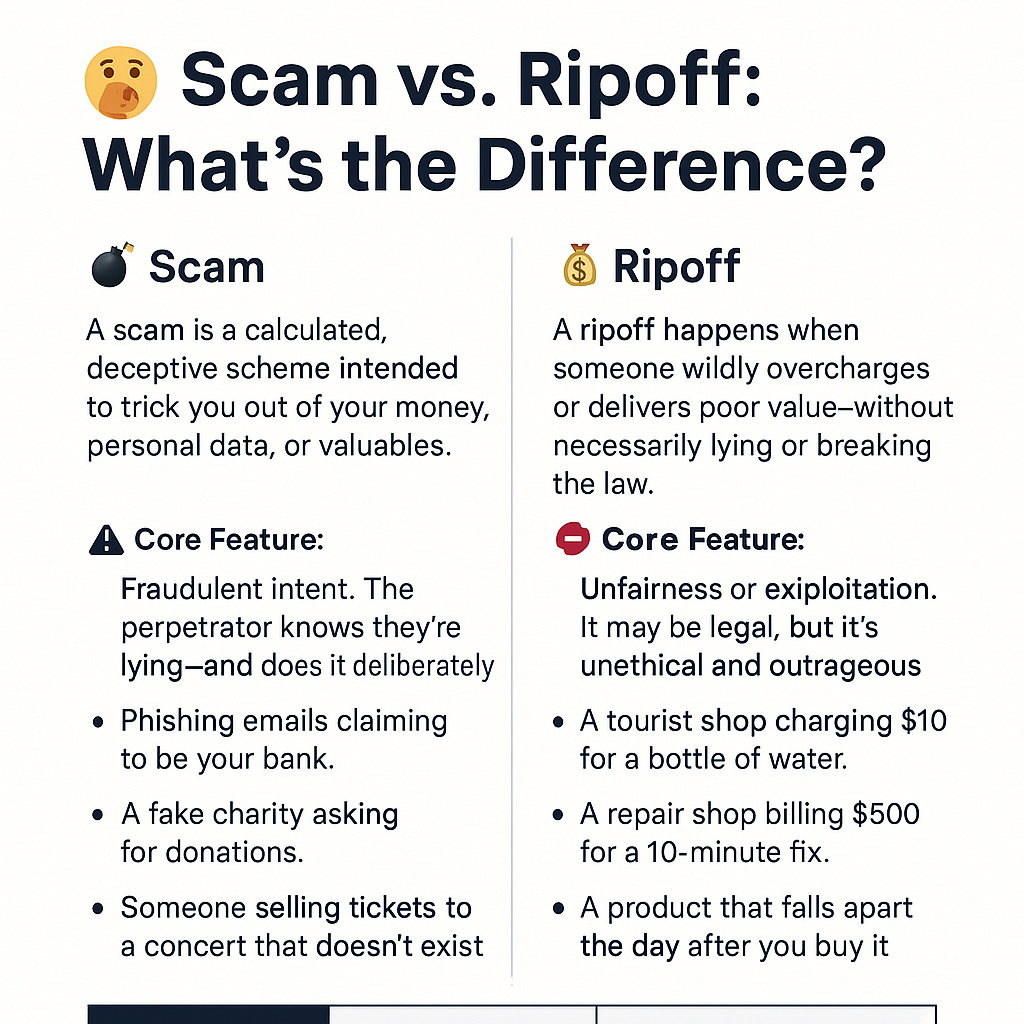The terms scam and ripoff are often used interchangeably, but they’re not quite the same. Both involve getting a bad deal—but only one is designed to deceive.
 Scam
Scam
Definition: A scam is a calculated, deceptive scheme intended to trick you out of your money, personal data, or valuables.
Core Feature: 
Examples:
-
- Phishing emails claiming to be your bank.
-
- A fake charity asking for donations.
-
- Someone selling tickets to a concert that doesn’t exist.
 Ripoff
Ripoff
Definition: A ripoff happens when someone wildly overcharges or delivers poor value—without necessarily lying or breaking the law.
Core Feature: 
Examples:
- A tourist shop charging $10 for a bottle of water.
- A repair shop billing $500 for a 10-minute fix.
- A product that falls apart the day after you buy it.
 Bottom Line:
Bottom Line:
| Term | Core Issue | Legal? |
|---|---|---|
| Scam | Intentional fraud |  Often illegal Often illegal |
| Ripoff | Unfair pricing or poor value |  Legal, but unethical Legal, but unethical |
A scam is a con. A ripoff is just a terrible deal.

